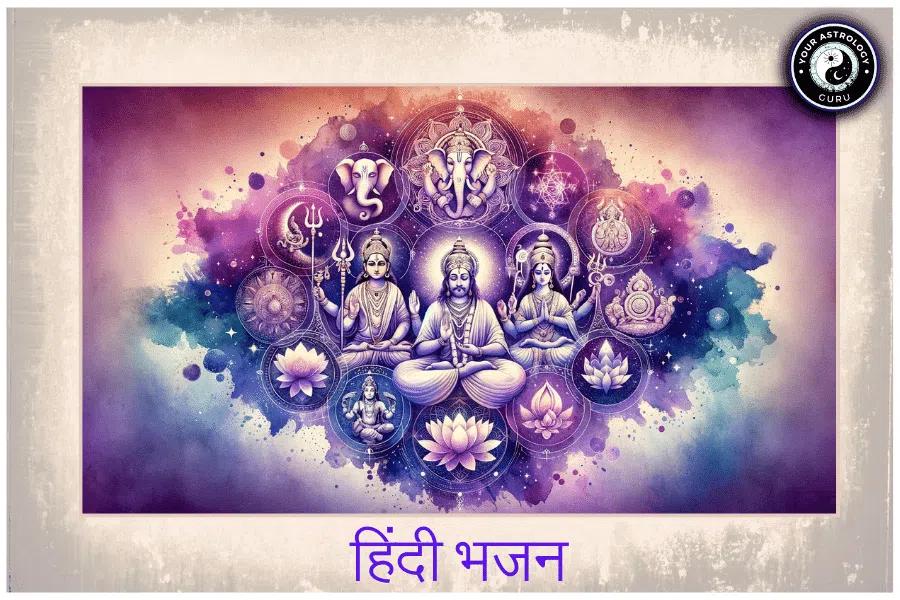The Zodiac is a term that is often associated with astrology and horoscopes. It refers to a circle of twelve divisions, each representing a specific constellation, through which the Sun appears to pass over the course of a year. The Zodiac holds great significance in astrology as it is believed to influence an individual’s personality traits and life events. However, there are two different systems of the Zodiac: the Tropical Zodiac and the Sidereal Zodiac. In this article, we will explore the differences between these two systems and discuss their origins and uses in astrology.
Table of Contents
Understanding the difference between Tropical and Sidereal Zodiac
The Tropical Zodiac is based on the seasons and is calculated using the position of the Sun relative to the Earth’s equator. It divides the year into twelve equal parts, with each part corresponding to a specific zodiac sign. On the other hand, the Sidereal Zodiac is based on the fixed stars and is calculated using the position of the Sun relative to specific constellations. It also divides the year into twelve parts, but these parts do not align with the zodiac signs in the Tropical Zodiac.
The key difference between the two systems lies in their reference points. The Tropical Zodiac uses the Spring Equinox as its starting point, while the Sidereal Zodiac uses specific fixed stars as its reference points. This difference in reference points leads to a discrepancy between the zodiac signs in each system. Over time, due to a phenomenon called precession, there has been a gradual shift in the position of the Earth’s axis, causing a misalignment between the Tropical and Sidereal Zodiacs.
How the Tropical Zodiac is calculated
The Tropical Zodiac is calculated based on the position of the Sun relative to the Earth’s equator. The starting point of this system is the Spring Equinox, which occurs when day and night are of equal length. This point marks the beginning of Aries in the Tropical Zodiac. From there, the year is divided into twelve equal parts, with each part corresponding to a zodiac sign. The dates associated with each zodiac sign in the Tropical Zodiac are fixed and do not change.
The Spring Equinox is significant in the Tropical Zodiac as it represents a time of rebirth and new beginnings. It symbolizes the start of the astrological year and is associated with the element of fire. The energy of the Spring Equinox is said to influence the traits and characteristics of individuals born under each zodiac sign.
How the Sidereal Zodiac is calculated
The Sidereal Zodiac is calculated based on the position of the Sun relative to specific constellations. Unlike the Tropical Zodiac, which uses the Spring Equinox as its starting point, the Sidereal Zodiac uses fixed stars as its reference points. These fixed stars are located within specific constellations and are used to determine the zodiac signs in this system.
The significance of the fixed stars in the Sidereal Zodiac lies in their association with ancient myths and legends. Each constellation has its own story and symbolism, which is believed to influence the traits and characteristics of individuals born under that zodiac sign. The position of the Sun relative to these constellations determines an individual’s zodiac sign in the Sidereal Zodiac.
The origin and history of the Tropical Zodiac
The origins of the Tropical Zodiac can be traced back to ancient civilizations such as Mesopotamia and Egypt. These civilizations observed the movement of celestial bodies and developed systems to track time and predict future events. The Greeks and Romans later adopted these systems and incorporated them into their mythology.
In Greek mythology, each zodiac sign is associated with a specific god or goddess. For example, Aries is associated with Ares, the god of war, while Taurus is associated with Aphrodite, the goddess of love. The influence of Greek mythology on the Tropical Zodiac can still be seen today in the symbolism and characteristics associated with each zodiac sign.
The origin and history of the Sidereal Zodiac
The origins of the Sidereal Zodiac can be traced back to ancient Indian astronomy. The ancient Indians were skilled astronomers and developed sophisticated systems to track the movement of celestial bodies. They believed that the position of the stars and planets at the time of a person’s birth could reveal important information about their life and destiny.
The ancient Indians divided the sky into twenty-seven equal parts, known as nakshatras, which correspond to specific constellations. These nakshatras were used to determine an individual’s zodiac sign in the Sidereal Zodiac. The influence of ancient Indian astronomy on the Sidereal Zodiac can still be seen today in Vedic astrology, which is practiced in India and other parts of the world.
The impact of precession on the Zodiac
Precession is a phenomenon that occurs due to the Earth’s wobbling motion on its axis. This motion causes a gradual shift in the position of the Earth’s axis, resulting in a change in the orientation of the Earth’s equator relative to the fixed stars. As a result, there has been a gradual shift in the position of the zodiac signs in both the Tropical and Sidereal Zodiacs.
The impact of precession on the Zodiac is significant as it has led to a misalignment between the two systems. The zodiac signs in each system no longer correspond to their original positions, causing confusion and debate among astrologers. Some astrologers argue that the Tropical Zodiac should be adjusted to account for precession, while others believe that it should remain fixed.
How the Tropical Zodiac is used in Western astrology
The Tropical Zodiac is widely used in Western astrology and is the system most people are familiar with. It is based on the seasons and is believed to reflect the psychological and emotional aspects of an individual’s personality. The zodiac signs in the Tropical Zodiac are associated with specific elements (fire, earth, air, and water) and modalities (cardinal, fixed, and mutable), which further define an individual’s traits and characteristics.
The strengths of the Tropical Zodiac in Western astrology lie in its simplicity and accessibility. The dates associated with each zodiac sign are fixed and do not change, making it easy for individuals to identify their zodiac sign. Additionally, the symbolism and characteristics associated with each zodiac sign in the Tropical Zodiac are well-established and widely recognized.
However, the Tropical Zodiac also has its weaknesses. The misalignment between the Tropical and Sidereal Zodiacs due to precession has led some astrologers to question the accuracy of the Tropical Zodiac. They argue that the zodiac signs in this system no longer correspond to their original positions in the sky and therefore may not accurately reflect an individual’s personality traits or life events.
How the Sidereal Zodiac is used in Vedic astrology
The Sidereal Zodiac is used in Vedic astrology, which is practiced in India and other parts of the world. It is based on the fixed stars and is believed to reflect the physical and material aspects of an individual’s life. The zodiac signs in the Sidereal Zodiac are associated with specific nakshatras, which further define an individual’s traits and characteristics.
The strengths of the Sidereal Zodiac in Vedic astrology lie in its connection to ancient Indian astronomy and mythology. The nakshatras are deeply rooted in Indian culture and have been used for centuries to guide individuals in various aspects of their lives. The symbolism and characteristics associated with each nakshatra in the Sidereal Zodiac are rich and diverse, providing a comprehensive understanding of an individual’s personality.
However, the Sidereal Zodiac also has its weaknesses. The misalignment between the Tropical and Sidereal Zodiacs due to precession has led some astrologers to question the accuracy of the Sidereal Zodiac. They argue that the nakshatras no longer correspond to their original positions in the sky and therefore may not accurately reflect an individual’s personality traits or life events.
The strengths and weaknesses of both Zodiac systems
The Tropical and Sidereal Zodiac systems each have their own strengths and weaknesses. The Tropical Zodiac is widely used in Western astrology and is based on the seasons, making it easy for individuals to identify their zodiac sign. It is also associated with well-established symbolism and characteristics. However, the misalignment between the Tropical and Sidereal Zodiacs due to precession has led some astrologers to question its accuracy.
On the other hand, the Sidereal Zodiac is used in Vedic astrology and is based on the fixed stars, providing a comprehensive understanding of an individual’s personality. It is deeply rooted in Indian culture and has been used for centuries to guide individuals in various aspects of their lives. However, the misalignment between the Tropical and Sidereal Zodiacs due to precession has also led some astrologers to question its accuracy.
Which Zodiac system is best suited for you?
When choosing between the Tropical and Sidereal Zodiac systems, there are several factors to consider. Personal beliefs and cultural background play a significant role in determining which system resonates with an individual. Some people may feel a stronger connection to Western astrology and the symbolism associated with the Tropical Zodiac, while others may resonate more with Vedic astrology and the nakshatras of the Sidereal Zodiac.
It is also important to consider personal experiences and observations. Some individuals may find that their zodiac sign in one system accurately reflects their personality traits and life events, while others may find that their zodiac sign in another system resonates more with their experiences. Experimentation and exploration are key in determining which Zodiac system is best suited for an individual.
How to choose between Tropical and Sidereal Zodiac
Choosing between the Tropical and Sidereal Zodiac systems ultimately comes down to personal preference. It is important to explore both systems, study their symbolism and characteristics, and observe how they resonate with personal experiences. Consulting with astrologers who specialize in both Western and Vedic astrology can also provide valuable insights and guidance.
It is also important to remember that astrology is not a definitive science and should be approached with an open mind. The Zodiac systems are tools that can provide guidance and self-reflection, but they should not be seen as absolute truths. Ultimately, the choice between the Tropical and Sidereal Zodiac systems should be based on personal beliefs, experiences, and intuition.
The Tropical and Sidereal Zodiac systems are two different approaches to astrology, each with its own strengths and weaknesses. The Tropical Zodiac is widely used in Western astrology and is based on the seasons, while the Sidereal Zodiac is used in Vedic astrology and is based on the fixed stars. The misalignment between the two systems due to precession has led to debate among astrologers.
When choosing between the Tropical and Sidereal Zodiac systems, it is important to consider personal beliefs, cultural background, and personal experiences. Exploring both systems, studying their symbolism and characteristics, and consulting with astrologers can provide valuable insights. Ultimately, astrology should be approached with an open mind and used as a tool for self-reflection and guidance.














